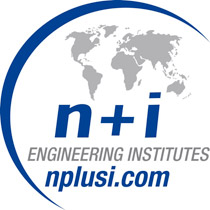
Master n+ INSA Toulouse Software engineering, IT.Information tech/eng
- Bachelor
- Master
- PostMaster
Titre officiel : Ingenieur en Informatique et réseaux - INSA Toulouse

INSA Toulouse
Durée de la formation
2 ans
Coût académique moyen constaté hors assurance
6 871€
Accréditation:
Organisme d'accréditation: CTI
Prérequis de la formation
Licence (ou équivalent)
Type de formation
- Formation initiale
Domaines
- Software engineering, IT.Information tech/eng, Software engineering, IT.Information tech/eng, Software engineering, IT.Information tech/eng
La section M1 est enseignée par
- INSA Toulouse
La section M2 est enseignée par
- INSA Toulouse
Description de la formation
The Network-Telecommunications engineering course focuses on the concepts, methods and techniques of signal processing, electronics, and computer science in order to look further, in the final year, into the more specific components of the specialization: telecommunications, networks and distributed computing.
It provides
Cross-disciplinary competences: capacity to manage the economic, financial, human, organisational and technical aspects of a project in the sphere of activity of a generalist engineer for the:
Design of Network Architecture and Protocols, Implementation and Administration of computer networks, taking into account Safety constraints: local and long distance networks, network connections, A.T.M, TCP/IP
Definition of hardware or software configuration based on the concepts of software engineering, coding, filtering: modulation, signal emission and reception of a network interface, software applications, client-server applications, Web applications,
Design of software and circuits for telecommunications: communication protocols, optical communications, terrestrial and satellite radio-communications, real-time applications.
In addition to the general competences of network-telecommunications engineers able to work in all sectors of activity, the course provides in-depth study of more specific topics such as:
formal design and programming of distributed systems
telecommunications and networks
and either:
Multimedia/Internet applications
Embedded Electronics telecommunications.
The Network-Telecommunications engineering course focuses on the concepts, methods and techniques of signal processing, electronics, and computer science in order to look further, in the final year, into the more specific components of the specialization: telecommunications, networks and distributed computing.
It provides
Cross-disciplinary competences: capacity to manage the economic, financial, human, organisational and technical aspects of a project in the sphere of activity of a generalist engineer for the:
Design of Network Architecture and Protocols, Implementation and Administration of computer networks, taking into account Safety constraints: local and long distance networks, network connections, A.T.M, TCP/IP
Definition of hardware or software configuration based on the concepts of software engineering, coding, filtering: modulation, signal emission and reception of a network interface, software applications, client-server applications, Web applications,
Design of software and circuits for telecommunications: communication protocols, optical communications, terrestrial and satellite radio-communications, real-time applications.
In addition to the general competences of network-telecommunications engineers able to work in all sectors of activity, the course provides in-depth study of more specific topics such as:
formal design and programming of distributed systems
telecommunications and networks
and either:
Multimedia/Internet applications
Embedded Electronics telecommunications.
Bourse (Sous réserve de sélection académique par l'école)
Année 1:
EIFFEL , EGIDE, CUMEXAnnée 2:
EIFFEL , EGIDE, CUMEXChoisissez une option
Majeure en Computer courses
Prérequis du niveau de langue
The minimum language level required, namely : A2 in French and B2 in English will be verified no later than end of April, 2026 (sera précisé dans votre offre académique)
Langue d'enseignement
Seulement en français
Niveau de langue à obtenir
Anglais B2
Partie M1
Site internet
Localisation
INSA Toulouse
135, avenue de Rangueil
31077 Toulouse cedex 4
Coût académique moyen constaté hors assurance
2301€
Core
| Crédits | Heures | Langue | |
|---|---|---|---|
| Object Oriented Design and Object Oriented Programming (I4IRIL11) | 6.00 | 75.00 | Français |
| Internet and Security | 5.00 | 65.00 | Français |
| Marketing, Business Law and Financial Management | 4.00 | 85.00 | Français |
| elective et sport | 4.00 | 0.00 | Français |
Computer courses
| Crédits | Heures | Langue | |
|---|---|---|---|
| Information Systems | 5.00 | 61.00 | Français |
| Fundamentals in Computer Science (I4IRIF11) | 6.00 | 72.00 | Français |
Core
| Crédits | Heures | Langue | |
|---|---|---|---|
| Concurrent and real time system (I4IRTR11) | 5.00 | 83.00 | Français |
| Research project | 4.00 | 115.00 | Français |
| Communication in professional organizations | 6.00 | 85.00 | Français |
| quality security and sport | 4.00 | 0.00 | Français |
Computer courses
| Crédits | Heures | Langue | |
|---|---|---|---|
| Logic and Problem Solving in Artificial Intelligence | 4.00 | 85.00 | Français |
| Architecture of computer systems | 7.00 | 115.00 | Français |
Partie M2
Site internet
Localisation
INSA Toulouse
135, avenue de Rangueil
31077 Toulouse cedex 4
Coût académique moyen constaté hors assurance
4570€
Core
| Crédits | Heures | Langue | |
|---|---|---|---|
| TRAINING PERIOD | 30.00 | 0.00 | Anglais |
Majeure en NETWORKS AND TELECOMMUNICATIONS COURSES
Prérequis du niveau de langue
The minimum language level required, namely : A2 in French and B2 in English will be verified no later than end of April, 2026 (sera précisé dans votre offre académique)
Langue d'enseignement
Seulement en français
Niveau de langue à obtenir
Anglais B2
Partie M1
Site internet
Localisation
INSA Toulouse
135, avenue de Rangueil
31077 Toulouse cedex 4
Coût académique moyen constaté hors assurance
2301€
Core
| Crédits | Heures | Langue | |
|---|---|---|---|
| Object Oriented Design and Object Oriented Programming (I4IRIL11) | 6.00 | 75.00 | Français |
| Internet and Security | 5.00 | 65.00 | Français |
| Marketing, Business Law and Financial Management | 4.00 | 85.00 | Français |
| elective et sport | 4.00 | 0.00 | Français |
Core
| Crédits | Heures | Langue | |
|---|---|---|---|
| Concurrent and real time system (I4IRTR11) | 5.00 | 83.00 | Français |
| Research project | 4.00 | 115.00 | Français |
| Communication in professional organizations | 6.00 | 85.00 | Français |
| quality security and sport | 4.00 | 0.00 | Français |
Partie M2
Site internet
Localisation
INSA Toulouse
135, avenue de Rangueil
31077 Toulouse cedex 4
Coût académique moyen constaté hors assurance
4570€
NETWORKS AND TELECOMMUNICATIONS COURSES
| Crédits | Heures | Langue | |
|---|---|---|---|
| Emerging networks | 5.00 | 50.00 | Français |
| networks and software security | 6.00 | 0.00 | Français |
| Software engineering process applied to service-oriented architectures | 7.00 | 97.00 | Français |
| Human ressources and other activities | 6.00 | 60.00 | Français |
| Choisissez 1 option(s) dans 3 | |||
| constraint satisfaction and combinatorial optimization problems | 6.00 | 0.00 | Français |
| model driven engineering | 6.00 | 0.00 | Français |
| Modeling, evaluation and optimization of the networks and protocols | 6.00 | 77.00 | Français |
Core
| Crédits | Heures | Langue | |
|---|---|---|---|
| TRAINING PERIOD | 30.00 | 0.00 | Anglais |
